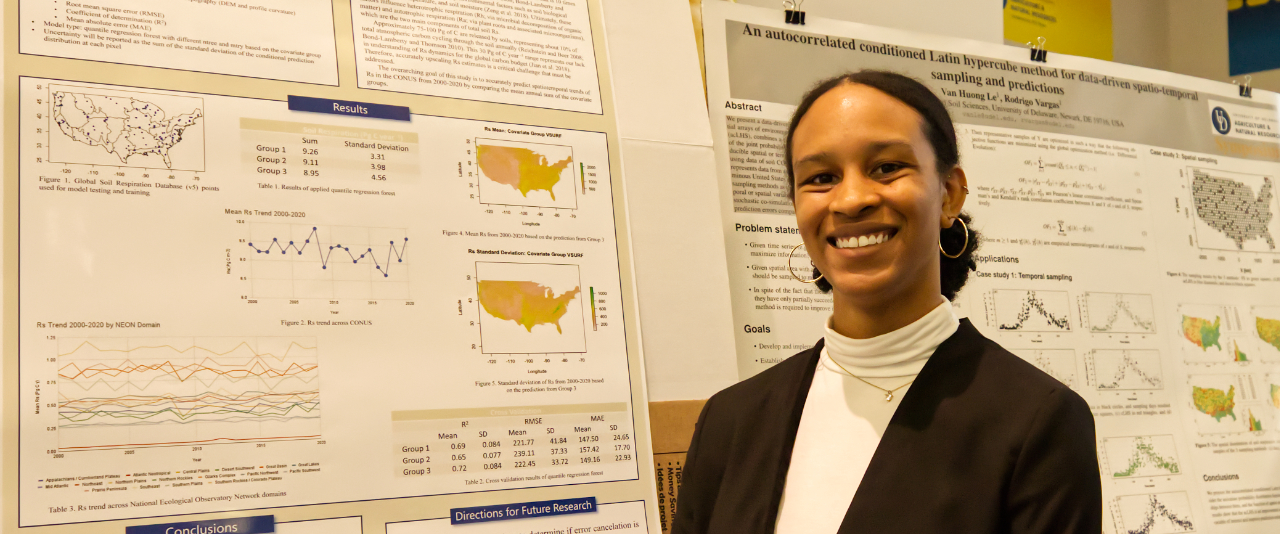
Plant and Soil Sciences Graduate Program

One graduate program. Two concentrations. Three degree options.
Plant Science involves course work in plant molecular biology, plant breeding, plant pathology, plant tissue culture, horticulture, crop science, plant anatomy and/or plant physiology with thesis research in one of those areas.
Soil Science involves course work and thesis research in soil chemistry, soil fertility and management, soil physics, soil microbiology and biochemistry, environmental microbiology, soil and water quality and soil formation and biogeochemistry.
Degree options:
- Ph.D. dissertation degree
- M.S. thesis degree
- M.S. non-thesis degree (full- or part-time)
-

Uncovering Earth’s respiration
April 13, 2025 | Written by Nya WynnElizabeth Smith, a former NSF Graduate Research Fellow and UD Plant and Soil Sciences Ph.D. alumna, investigated soil respiration using machine learning to better understand its role in the global carbon cycle. Analyzing two decades of data from multiple datasets, her research revealed unexpected patterns in national and global soil respiration trends. Now a postdoctoral researcher at Georgia Tech, Smith is expanding her computational expertise to study enhanced rock weathering, a technique for carbon capture in agriculture. Passionate about science communication, she also works to make environmental research more accessible, bridging the gap between scientific discovery and public understanding. -
Farm-to-glass brewery
April 02, 2025 | Written by Molly SchaferSince the 1920s, the Hopkins Family has farmed the same plot of land in Havre De Grace, Maryland. David grows the barley, and his son Aaron Hopkins, a UD Class of 2012 UD food and agribusiness marketing and management alumnus, uses it to create a unique range of craft beers. The father and son UD alumni duo are joined in their endeavors by David’s siblings, Alice Hopkins Puckett and Daniel Hopkins, who are co-owners of the farm and managing partners of Hopkins Farm Brewery. -
Meet our new faculty: Christian Dewey
March 25, 2025 | Story by Katie Peikes | Photos by Katie Peikes and courtesy of Christian DeweyNew UD Department of Plant and Soil Sciences faculty member Christian Dewey studies trace elements in the soil, including contaminants such as lead and uranium, and nutrients such as nitrogen. Dewey also studies carbon in soils and how soils work to control the rate flux of various elements into water bodies and ecosystems.
Important Links
Application process update: Due to coronavirus (COVID-19), the program of PLSC is waiving the GRE requirement for our graduate program. If you wish to apply without a GRE score, please enter a future GRE exam date into the application. It need not be a legitimate exam date. Entering a future exam date causes the system to finish your application and send it on to our review committee where it will receive full consideration.
